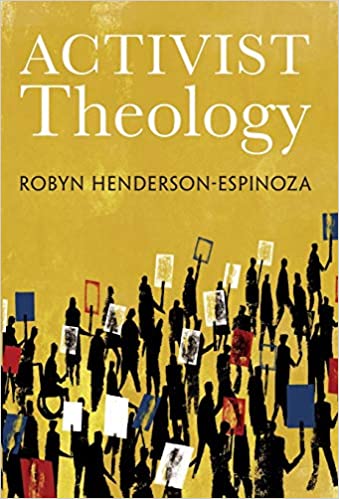Activist Theology by Robyn Henderson-Espinoza
From the StacksLaura Gottwald
Published 07 November 2020

For Dr. Robyn Henderson-Espinoza, “activist theology” is an “invitation to enter into a movement of becoming that spirals toward justice.” The author (who uses the pronouns they, them and theirs1), employs the term activist theology “to describe my work of translating theory to action and theology to practice.”
Yet it is more than that. It is a challenge for us to examine our own theologies in the light of ethics and activism. We are called to “live our theology out loud.” In reading this book you may find yourself asking, why isn’t all theology activist theology?
The author is of white and Latinx parentage with white-passing privilege and a “trans masculine of center Dapper Q2 presentation.” I mention this because of the access to diverse groups and experiences they have that are detailed in the book and because they indicate how important these aspects of their identity are in their theoretical work.
Dr. Robyn believes in the power of story – theirs, ours, others’ and Jesus’. They weave their story with their premises throughout the book, as well as asking us to seriously consider our own stories. “Finding the heart of you own story is the heart of activist theology,” they write. The stories of Jesus are given to us to show that to follow Jesus is to be an activist theologian. We should emulate his strategies in our activism.
Dr. Robyn gives stories about themself and others as illustrations of the topics they cover in the book and as illustrations of Dr. Robyn’s development as a person, scholar and activist.
Dr. Robyn’s theology is “radical political theology” – a theology that confronts all of the systemic oppressions of those on the margins. It is one that midwives more love into the world for a collective liberation. It is one that uses the way of Jesus as model of radical theology.
To attempt to delineate all of Henderson-Espinoza’s theory of activist theology would take more space than allotted here. In finishing I would ultimately say that this is a book well worth reading and having in your personal library.
Minneapolis: Fortress Press, 2019
- DapperQ is one of the world’s most widely read digital queer style magazines and is a preeminent voice in queer fashion and beauty.
- The pronouns “they, them and theirs” are used to indicate that a person does not identify with either the male or female gender. This is also known as “non-binary gender identity.”
